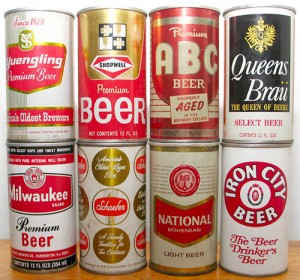
Never, ever say "diet" again—even if you feel you want to, and are ready to, let go of extra weight.
I think the answer to that question is yes. But timing—timing is absolutely everything. Here’s a question from reader Heather, who’s wondering if she’s ready to deal with weight loss without obsessing…
Q: About 6 years ago, I had anorexia, which has subsequently turned into what feels like BED/EDNOS. As a result, I am now overweight and unhappy with it. I have the support of a counsellor, a local ED group and my partner and am making little steps towards improving my confidence and self-esteem. However I would really like to lose some weight and get back to a normal, healthy weight for me. I’ve been putting it off for so long, and hoping if I ignored it it would go away, but it hasn’t.
My worry is that by turning to diets and attempting to address my weight issue, I might invite the ED (and accompanying depression) back in. How can you make positive steps towards losing weight (and gaining a healthy body and mind) without resorting to old ED habits?
A: You know I’m not a therapist, but as a fellow formerly eating-disordered individual (although I always dealt with BED, never anorexia), I would ask you—no, beg you!—to tread very carefully in this area. I do not think that once disordered, we’re always disordered, or that we’re doomed to live out our lives in bodies that don’t feel quite comfortable or right-sized for us. But let me just tell you what had to happen in order for me to finally be able to address my desire to let go of some weight without starting to restrict or freak out.
Only after I dealt with the inner reasons for why I used food could I even begin to think about numbers on a scale. The fact is, I was a yo-yo dieter from the age of 15 through my early college years. I tried everything, starving, Rx diet drugs, herbal pills, Atkins, a doctor-supervised diet, Jenny Craig—and, while I’d lose 5, 10, even 25 pounds, I’d always end up the same way: Heavier, more deep into the bingeing and more hopeless than I was when I started whatever diet it was.
So I completely quit dieting. I was in therapy, was reading books about emotional eating, and told myself over and over that the outside didn’t matter—all that mattered was the inside. Eventually, I started to believe it! While I didn’t always feel pretty or happy about my shape, I stopped obsessing about it. I started going to binge-eating support groups every week and even got a mentor from the group that I would call nearly every day.
I truly no longer cared much about my weight. I felt so much stronger and happier because I was no longer punishing myself and my body with piles of extra food. I literally worked to get to the point where I felt that if I never lost another pound again, I could live life and be happy. While I wasn’t focusing on weight loss, I had instituted some very healthy behaviors that I’d learned through therapy and from my support group, which just so happened to have the effect of at least stabilizing my weight:
1.) I planned my food each morning. I didn’t try to be “good” or diet-y—my only purpose in planning was to take the guesswork out of my day. Writing down exactly what I was planning to have made it so that I didn’t have to think about food, and it diffused the opportunity to obsess. My only guidelines were the make sure I ate some fruits and veggies (for my health) and to try to think about what portion a normal person would eat. As an example: I’d plan to have pizza for dinner. Instead of ordering a whole pie (which was just asking for a binge, no matter how far along in recovery I was!), I’d plan for two large New York-style slices and pick them up from my local pizza place on the way home. The fact that I had planned to have a food that I used to binge on and think of as “bad” took away any sense of lingering guilt attached to that food. And, we all know how damaging guilt is.
2.) I ate three meals and one or two snacks a day. People in my support group had taught me that, if you go too long without eating, you’re simply asking for a binge. So I built in one or two snacks into my day and made sure I brought those suckers with me wherever I went. Aside from keeping me satisfied so I wouldn’t get too hungry and fall into a binge, defining four or five times during the day that were designated “eating” times made it very clear to me whether I was reaching for something for emotional reasons—three meals and two snacks a day was plenty of food for my body. So if I wanted more than that, it was likely for emotional reasons.
I’d completely accepted the way my body looked. But as I became more connected to my body and more loving toward it and myself as a whole, I realized that I did not have as much energy as a woman of my age should. I also had sleep apnea (which is exacerbated by extra weight) which caused me to wake up each morning exhausted and with headaches. I also knew that my waist size was just a hair shy of the cutoff for the point at which your risk of heart disease really starts to climb. So, I decided to gently move toward weight loss with increased exercise and tweaking my food choices.
Only you (or you and a therapist or mentor?) can decide, whether you’re ready to think about weight loss or not. But know that if you feel shaky and not quite ready, it’s OK-just because the timing isn’t right yet doesn’t mean it’ll never be right. The key for me, like I said, was completely and utterly letting go of all concern with weight until I was pretty far along in recovery. You might reach out to folks in your ED support group, too, and see if anyone has faced a similar situation.
Now, to the rest of the HealthyGirl.org community: What wisdom can you share with Heather on this point? What has your experience with weight been as you’ve healed (or started to heal) your relationship with food?
For a new food-sanity or body-sanity tip every single day, follow @hlthygrl on Twitter!





as someone who has bounced between binging and anorexia, it helps not only to eat three meals a day, but also to learn to eat real food in front of people. binging is often secretive, and for me, occurs at night when I am alone and in my room. part of my restricting issues involved being afraid of the calories in anything not a fruit or vegetable. as a result, i started to eat massive quantities of unutritional food (cake, chocolate, whole boxes of cereal, peanut butter, and all sorts of sugary fatty things). despite how scary it is, i am starting to eat regular meals in front of people. it makes eating less shameful and more comfortable. in addition, i feel accountable: there is a set amount of food i can eat at a restaurant or another person’s house, whereas by myself i would eat a whole container. i still binge every night, but my relationship with food is becoming better. i have gained a little more weight as i started eating more during the day. the next step is to finish not feeling shame about eating, and then to learn to eat only when i am hungry for food, instead of when i want to relax or zone out or numb my feelings. it will take lots of little baby steps and a long time (i am a VERY slow learner) but i have to have faith that i will succeed. best of luck, heather.
Hi Sunny,
Thank you for your reply. I wanted to ask how eating regular meals and planning your day’s food fits in with the notion of mindful eating and eating when you are hungry? Was this a step towards regulating your eating before moving on to eat ‘normally’?
Hi Heather! Sort of, yes. I no longer plan out what I’m going to eat, but I still basically eat three meals and one or two snacks a day. The timing varies more now, and sometimes I’m not hungry for snacks so I don’t eat them; sometimes I’m hungrier than usual, so I have a third snack. It’s much more fluid. But that very simple structure-one in which I knew I’d not be depriving myself-helped me to regulate my urges at first. Unless I’d planned to eat one for a snack, the cupcakes that showed up at work every other day were no longer a part of my day-and therefore weren’t able to trigger a binge or feelings of guilt. If I really wanted one, I’d save it and plan to have it the next day for a snack. It took the “badness” out of things since everything was preplanned, and therefore preapproved. It was really important for me not to think of these daily plans as any type of “diet” though. Going to my support meetings helped keep my head in the right place. xo…Sunny
It’s all so complicated, isn’t it!?!
I think after a long time of not engaging with food and eating (or not) almost blindly, constantly distracting myself from it, it becomes diffcult to eat and acknowledge it. I guess the three meals and snacks concept is another way of acknowledging it, rather than sneaking it behind my own back (and into my mouth!).
I think the idea about keeping a cupcake or whatever’s going around the office is a nice idea because it means you can plan nice things into your day, without the dilemma of to-eat-or-not-to-eat!
I’m working through things with my therapist and hopefully will feel brave enough to do an actual food shop for a full week, with actual food I’ve made by myself by the end of it. It’s funny how we don’t even know the things we’re afraid of, because we’re sometimes too busy reacting to see it.
I have been seeing the girls from my support group (although we are a mix of disordered eating!) every couple of weeks to catch up, and I think this might be something I’ll pick their brains about!
Thank you again Sunny for taking the time out to answer my question and giving me some really healthy food for thought!
This is a really good post and very mindful of the struggles we face in recovery. I think it is really nice you mention it to a therapist, mentor, etc because often we can slip into rationalization with weight loss. If weight loss comes from unhealthy behaviors then the loss is linked to unhealthy means. If we are healthy, and mindful of our body and have weight loss, then this is very different. It is so important a discussion, and honestly feel it is a VERY individual decision but I always say tread lightly, because no one knows if things will trigger them until they pursue something, so be vigilant and mindful of behaviors, how your body feels, and if you are healthy. I find integrating a exercise that makes me feel connected to my body has also made my healthy eating more easy to follow. I feel connected, healthy, spiritually and physically. But again, I too still struggle and really question my intentions of losing weight, take OUT the numbers, because to me HEALTH has to be the priority 1st and foremost. How I feel in clothing, and feel working out means way more than a number on a scale ever should.
I am currently going through this. I am losing weight so that I can be healthier, but I am doing it with my eating disorder int he back of my mind, as soon as I feel disordered, I tell myself that what the ED is telling me isn’t true. I am currently over 250 pounds at 5’2″ and pre-diabetic, I am learning to enjoy food as it is, not as “good” or “bad”.
I was bulimic in my late teens and early 20s. I haven’t purged/abused laxatives for over 20 years. (I ate for emotions/stress periodically afterward, but not in true binges.) And I don’t know what came first chicken/egg but although I can tell when I am physically hungry, I have trouble knowing what is enough-I’m usually uncomfortable if I try to find “full” instead of going by “what is a normal healthy serving size” and trying to keep meals between 400 and 700 calories. So I know I did overeat past what my body needed from time to time even if it wasn’t binges.
Over time, my weight climbed-not huge, an “overweight” BMI but not “obese”- but my metabolism shifted in my late 30s and I couldn’t get away with eating more than my body needed in the longterm. I had health problems with borderline high blood sugar and super high blood pressure so I decided to take weight off as I didn’t want to medicate them away. I didn’t “diet”-I cut back on less nutritious foods, wrote down what I ate, took some walks regularly. I did it slowly and healthily. I figured out what is a good calorie level for me for my size and age and I eat 4 or 5 times a day.
And I lost 25 pounds and kept it off, and I’m now a healthy, normal weight BMI wise physically. I have normal blood sugar levels and almost normal blood pressure (a bit high but not that bad.) But guess what? Even NOT dieting, I started to develop many of the mental aspects of someone who is anorexic. I’m 20 plus pounds heavier than the weight I’d have to be to be diagnosed with anorexia, but I would find myself feeling terrible if I gain more than a pound or two natural fluctuation. I would feel guilty if I’m “bad” and eat things that are “evil” calorically. I would avoid eating at restaurants that don’t have calories and nutritional info posted. I’d “count down” to the daily “allowed calories” at Souplantation to make sure I didn’t eat more than I “should” until I realized HEY-THIS ISN’T NORMAL.
It’s pretty mild and doesn’t rule my life. But I can see similarities between how I started to think and how an anorexic thinks, and I went whoa, I need to nip this before I have EDNOS.
So tread lightly. And if you find your thoughts going anywhere NEAR what they were like before, tell your therapist and stop trying to lose weight. I stopped the backsliding before it got really strange but it took a while to recognize the abnormality of how I was thinking.
But although I’m not in the camp that you can never get better, I’m also of the opinion that you need to know you have a susceptibility that gave you an ED in the first place and tread lightly. I never knew my thoughts would go back to thinking remotely anything like they did, and I’m glad I realized it before I went back into a true, full on eating disorder rather than eating disorder thoughts alone. I’m working on accepting my body right now.
Watch your thoughts and maybe try to eat more nutritiously rather than “diet” as in adding a couple of fruit and vegetable servings per day, so you’re adding rather than subtracting.
Thank you for all your insightful replies.
I feel like I am lucky to have found a therapist who is focused on helping me address my issues with food by combining some traditional talking therapy with practical things I can do to help myself, with the goal of helping me to learn to have a healthful relationship with food and my body underpinning this. She knows I’d like to lose some weight as I am not at my natural weight pre-ED, as such, but also that dieting isn’t the way.
Thus far, she has set me homeworks and I am currently looking to monitor those thoughts that make me feel bad and guilty. In time, we are going to look at balancing those parts of me which take over (the judgemental and critical bits) with those parts of me I am less used to seeing (the kind, positive and supporting ones). We’re also going to look at me overcoming my fears of shopping for food and cooking.
She is extremely positive that I can make some real progress, andwhilst I remain a little skeptical, I think there might be something in it. I feel supported and am willing to give things another go, as sometimes self-help isn’t enough when you’ve a way to go. For example, I know eating fruit and vegetables is a good idea, but sometimes the thought of even trying to plan how to get them in my diet is overwhelming and it feels less stressful to go for the “healthy” ready meals. Or, for example, when I feel low at work I know it won’t make it better if I buy a cupcake, but I still do it as it seems to be the only way I know how to make myself feel better, even if only momentarily.
How do other people cope with trying to counter those things we do that we know aren’t in our own best interests?
This post jumped out at me as I scrolled through the blog. I haven’t gone back to ED behaviors for about 4 years, and recently wanted to make a change to cut way back on my sugar consumption. I knew weight loss would happen, and I was really scared.
What I did was make the changes sloooowly. Nothing drastic. I had my second baby 9 months ago and have not weighed myself since my 9th month of pregnancy (at the OB’s office. I politely refuse at the dr’s now).
I started exercising regularly again and this week saw a pair of jeans I actually forgot I had. I thought they might not fit, and before I put them on I knew that if they didn’t, I would have no attachment to that fact. They fit and that was just it: They fit. No rejoycing, no announcing it to anyone. And I went on with my day.
Little things like that are huge for me. I congratulate myself for just “being” me, not a slave to the size of my pants, the number on the scale, the amount of meals or calories I eat. A little bit of weight loss that I let happen naturally is something I never thought could happen. But, it did!